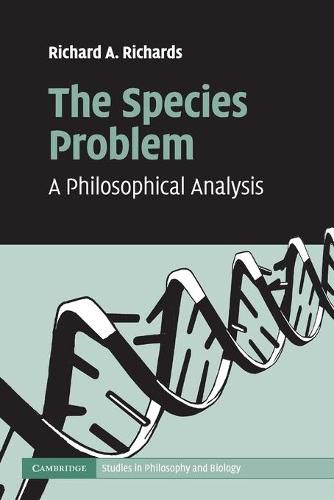Readings Newsletter
Become a Readings Member to make your shopping experience even easier.
Sign in or sign up for free!
You’re not far away from qualifying for FREE standard shipping within Australia
You’ve qualified for FREE standard shipping within Australia
The cart is loading…






There is long-standing disagreement among systematists about how to divide biodiversity into species. Over twenty different species concepts are used to group organisms, according to criteria as diverse as morphological or molecular similarity, interbreeding and genealogical relationships. This, combined with the implications of evolutionary biology, raises the worry that either there is no single kind of species, or that species are not real. This book surveys the history of thinking about species from Aristotle to modern systematics in order to understand the origin of the problem, and advocates a solution based on the idea of the division of conceptual labor, whereby species concepts function in different ways - theoretically and operationally. It also considers related topics such as individuality and the metaphysics of evolution, and how scientific terms get their meaning. This important addition to the current debate will be essential for philosophers and historians of science, and for biologists.
$9.00 standard shipping within Australia
FREE standard shipping within Australia for orders over $100.00
Express & International shipping calculated at checkout
There is long-standing disagreement among systematists about how to divide biodiversity into species. Over twenty different species concepts are used to group organisms, according to criteria as diverse as morphological or molecular similarity, interbreeding and genealogical relationships. This, combined with the implications of evolutionary biology, raises the worry that either there is no single kind of species, or that species are not real. This book surveys the history of thinking about species from Aristotle to modern systematics in order to understand the origin of the problem, and advocates a solution based on the idea of the division of conceptual labor, whereby species concepts function in different ways - theoretically and operationally. It also considers related topics such as individuality and the metaphysics of evolution, and how scientific terms get their meaning. This important addition to the current debate will be essential for philosophers and historians of science, and for biologists.